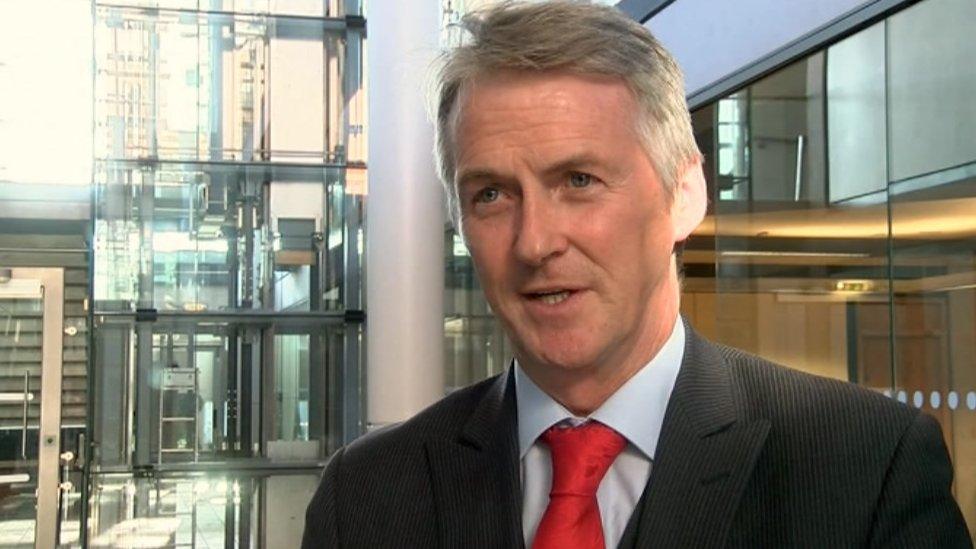Social care: Self-employed carers enlisted in remote areas
- Published
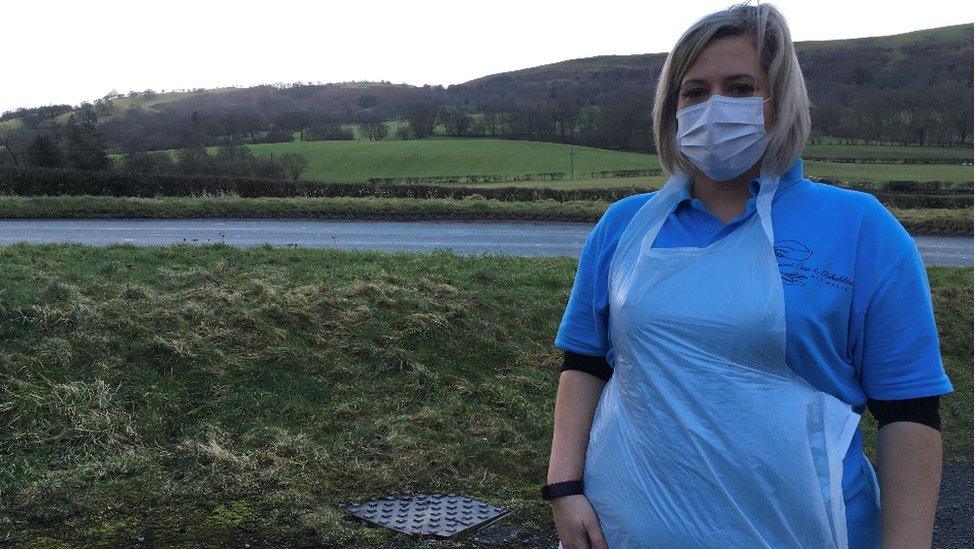
Emma Launder balances her main job as a farmer with caring for seven clients in the area
Self-employed carers are helping tackle the challenge of providing social care in the most remote areas of Wales.
Care companies are not always able to provide a service in some rural areas of the country because staff can spend more time travelling than caring.
In response, Powys council has implemented a scheme to enable local people to become self-employed carers.
Emma Launder, from Llanerfyl, balances her main job as a farmer with caring for seven clients in her area.
In the past year, about 20 people have cared for 50 clients across the Powys council area, one of the most sparsely populated in the UK.
Programmes - where the carers have a mentor known as a "community catalyst" - have been operating in England for a decade, but they are less common in Wales.
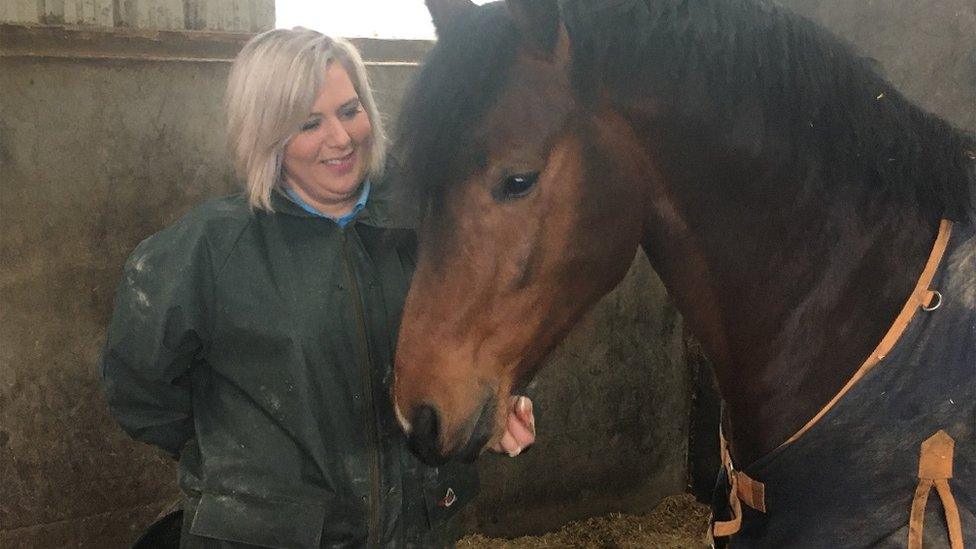
"I love farming and I love supporting people," says Ms Launder
As well as the project in Powys, there is a new scheme in Wrexham and a more established one in Pembrokeshire, where 11 self-employed carers serve 40 people.
"I get up early, go to bed late. I work very hard but I enjoy working hard," said Ms Launder.
"I love farming and I love supporting people, so I feel like I'm getting the best of every single aspect of my life really - it's the best decision I've ever made, and I've never been so happy."
Powys project leader - or community catalyst - Heather Maling said it was not always cost-effective for companies to send carers into the most remote areas.
"To have local care for local people seems to be the way forward for Powys and other rural communities," she explained.
Ms Maling said the carers invoice their clients directly at the end of each month.
For those needing care, there is a benefit in having someone they know nearby if they need them, says Myfanwy Alexander, Powys council's cabinet member for social services.
"Geography is one of our biggest challenges," she said.
"What we need to do is to find ways of reducing the miles that our carers travel and also provide the service users with somebody perhaps closer to home, emotionally, as well as geographically."

'WE ARE FAMILY: THE GENERATION GAME': Why are more young people deciding to live with their parents?
CHECK OUT THE LATEST SERIES OF FOILED: Bleach for the Stars is thriving under new management

Related topics
- Published18 January 2021
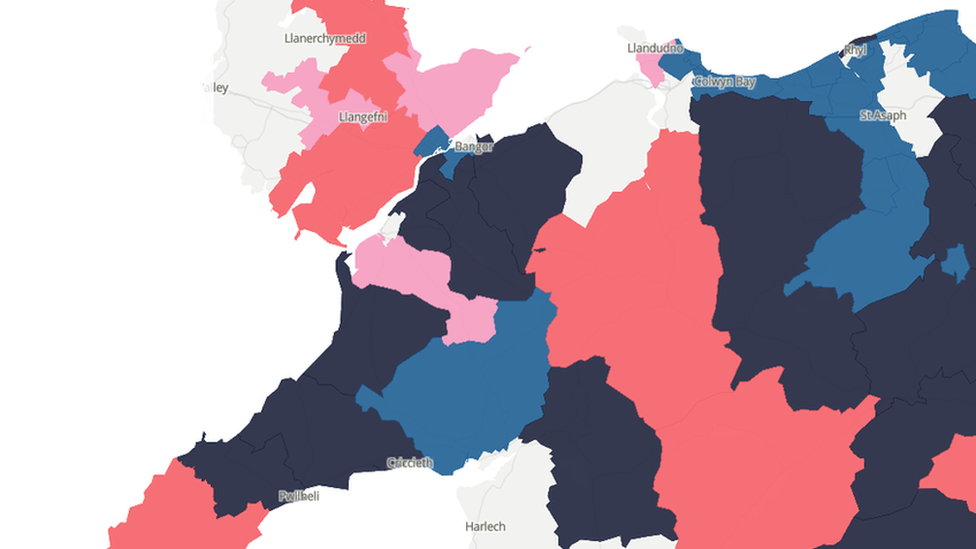
- Published23 July 2020
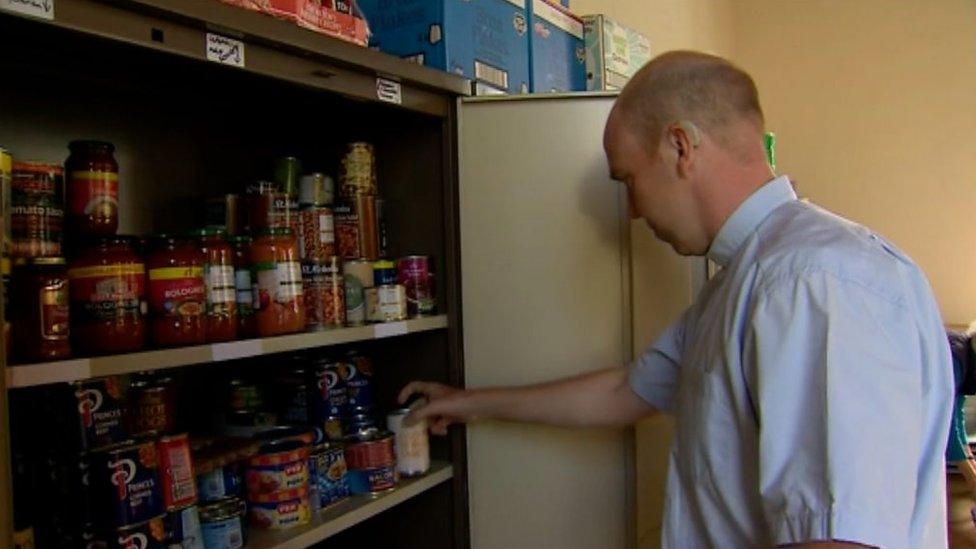
- Published19 January 2021
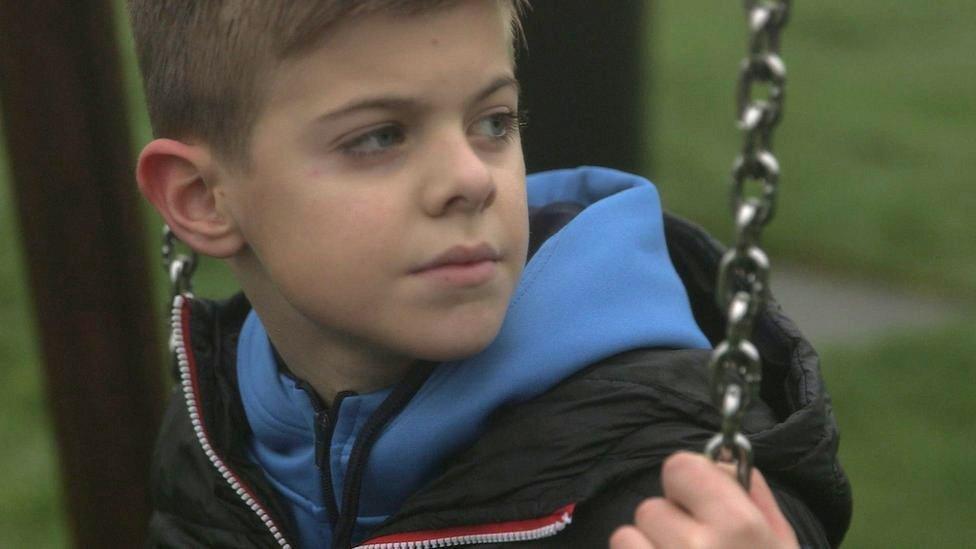
- Published24 July 2018
